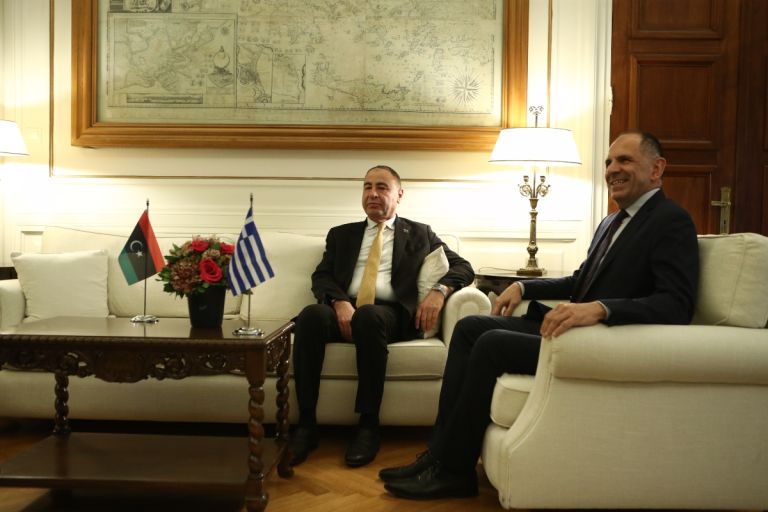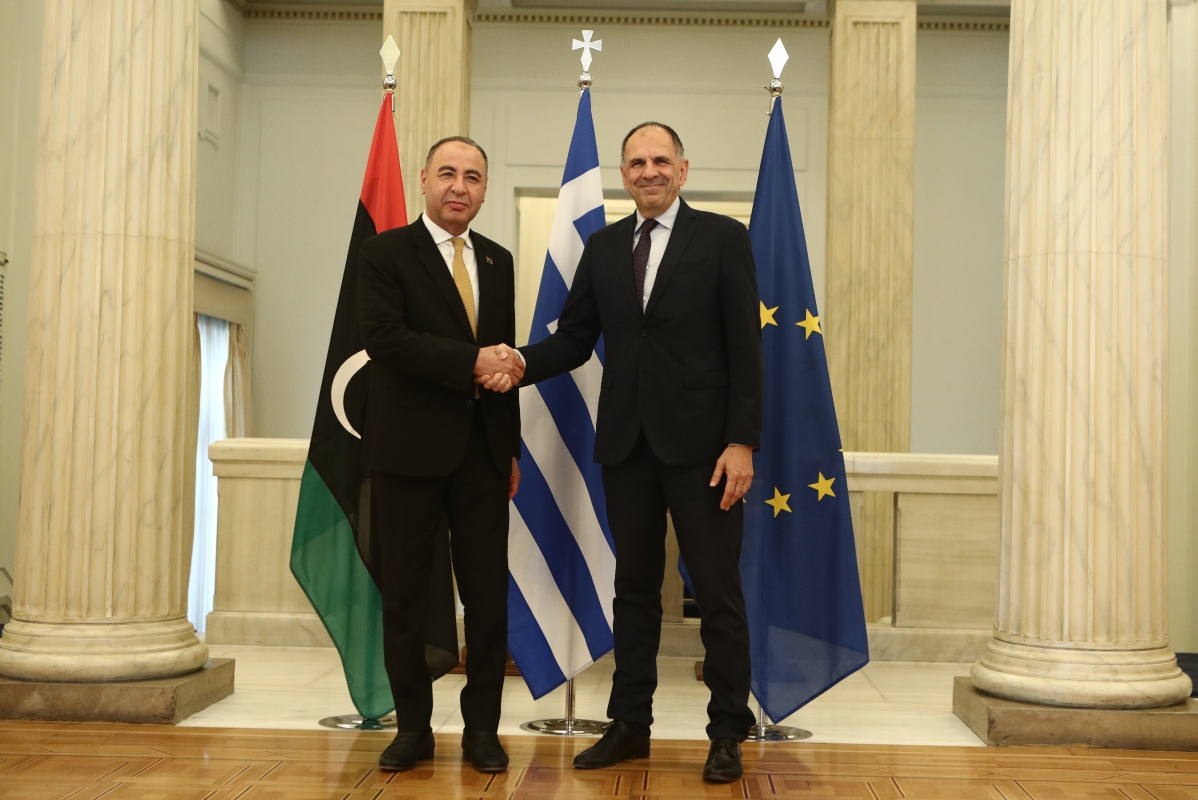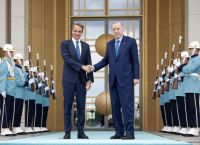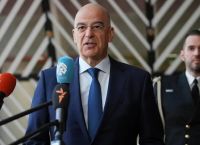Greece and Libya Resume Exclusive Economic Zone (EEZ) Talks Amid Shifting Mediterranean Dynamics

Πηγή Φωτογραφίας: eurokinissi//Greece and Libya Resume Exclusive Economic Zone (EEZ) Talks Amid Shifting Mediterranean Dynamics
Greece and Libya have officially relaunched negotiations to define their Exclusive Economic Zone (EEZ), after years of diplomatic freeze and regional tension. The meeting between Greek Foreign Minister Giorgos Gerapetritis and Libya’s acting Foreign Minister, Taher Salem al-Baour, in Athens marks a significant milestone in the long-delayed maritime dialogue between the two nations.
A first round of technical committee discussions took place in Athens, with both sides agreeing that the next meeting will be held in Tripoli. For Greece, the move is seen as a step toward normalizing bilateral ties, which had been severely strained after the 2019 expulsion of the Libyan ambassador by the Greek government over Libya’s maritime deal with Turkey.

The Legal Chessboard of the Eastern Mediterranean
During joint statements, Mr. Gerapetritis stressed the importance of respecting International Law, particularly the United Nations Convention on the Law of the Sea (UNCLOS). He reaffirmed Greece’s—and the European Union’s—firm stance on the invalid and legally non-binding nature of the 2019 Turkey–Libya maritime memorandum.
Libya, meanwhile, appears to be walking a diplomatic tightrope, having recently submitted a note verbale to the United Nations incorporating maps drawn from the Turkish-Libyan deal, while simultaneously engaging in bilateral negotiations with Athens.
Beyond Borders: Coast Guard, Commerce, and Connectivity
In addition to maritime talks, the two sides discussed a range of bilateral cooperation topics:
- Training of Libyan coast guard personnel by Greece, particularly in relation to migration control and maritime security.
- The establishment of a direct air connection between Athens and Tripoli, aimed at boosting travel and business activity.
- Plans for a Greek business delegation to visit Tripoli this fall, exploring opportunities in energy, infrastructure, transportation, and construction sectors.
What Comes Next: Eyes on Tripoli—and Ankara
While these negotiations have just begun, success will depend not only on technical cartography or legal arguments, but on political will, diplomatic resilience, and regional stability.
Turkey is closely monitoring the developments, as a finalized Greece–Libya agreement on EEZ boundaries could directly challenge Ankara’s long-held maritime claims under the “Blue Homeland” doctrine.
In any case, the resumption of Greece–Libya maritime talks represents a significant diplomatic breakthrough—and perhaps a rare opportunity to reshape alliances and bring greater clarity to one of the most contested maritime regions in the world.
Source: pagenews.gr
Διαβάστε όλες τις τελευταίες Ειδήσεις από την Ελλάδα και τον Κόσμο






Το σχόλιο σας